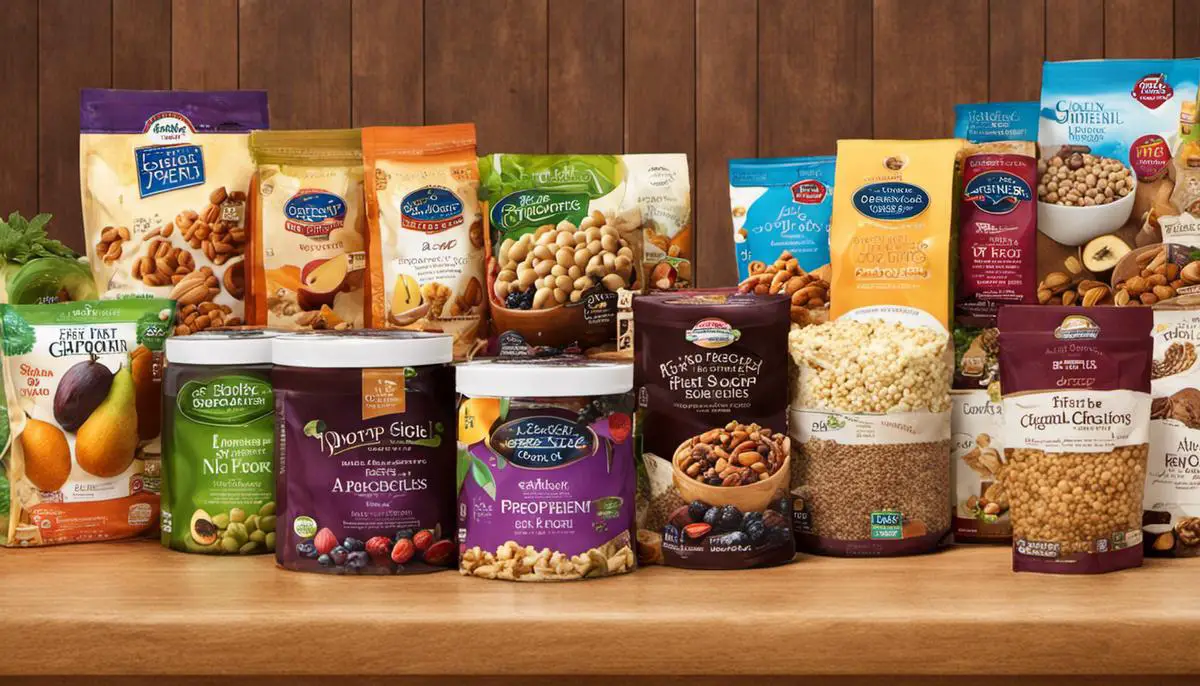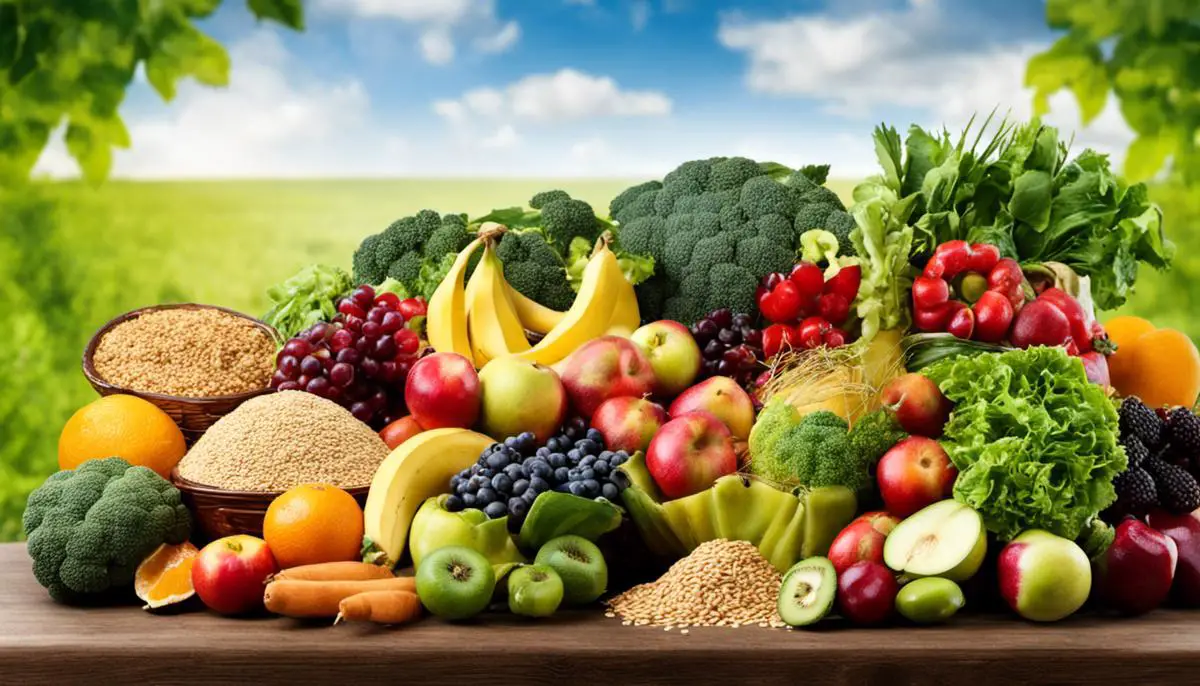Living with constipation can be uncomfortable and frustrating. As an essential function of our body, maintaining regular bowel movements is a key aspect of our well-being. The impact of constipation extends beyond physical discomfort, potentially causing stress and unease in our daily life. The purpose of understanding constipation is not just to identify its causes and effects on the body, but also to equip ourselves with knowledge to combat it. The role of diet in digestion goes beyond providing our body with nutrients; it plays a pivotal role in ensuring the smooth functioning of our digestive system. With an emphasis on dietary fiber and its role in promoting regularity, this discussion will delve into the science of digestion, present a variety of fiber-rich foods that help relieve constipation, and offer practical ways to incorporate these foods into our everyday diet.
Understanding Constipation
Understanding Constipation: Uncomfortable Yet Crucial to Tackle
Constipation is a common health condition that affects the digestive system, causing one to have difficulty emptying the bowel due to hard, dry stools. This issue is often marked by infrequent bowel movements, typically fewer than three times per week. While not usually severe, chronic constipation can greatly impact one’s quality of life and may contribute to potential complications such as hemorrhoids, anal fissure, and fecal impaction.
The key factors that contribute to constipation include lack of fiber in the diet, insufficient water intake, lack of physical activity, certain medications, and sometimes, health conditions such as diabetes, and neurological disorders.
In the human body, the colon or large intestine’s primary role is to absorb water from the residue food and convert it into stool. When the food moves through the colon too slowly, it leads to excessive water absorption, resulting in hard and dry stools that are difficult to pass.
Significance of Diet in Preventing Constipation
Dietary intervention serves as one of the pivotal treatment approaches to address constipation. It primarily revolves around consuming foods rich in dietary fiber, the part of plant-based foods (like fruits, vegetables, and whole grains) that the body can’t break down. Fiber works by adding bulk to the stool, making it easier to pass and promoting regular bowel movements.
Superfoods for Relieving Constipation
Fiber-rich foods that can aid in relieving constipation include pears, bananas, apples, and berries—all high in soluble fiber pectin, which helps to soften the stool. Additionally, whole grain bread, oatmeal, and bran are loaded with dietary fiber, significantly improving bowel regularity.
Incorporating healthy fats into the diet can also enhance digestion. Avocados, chia seeds, and nuts offer considerable amounts of fiber and healthy fats, aiding stool passage.
Notably, leafy green vegetables—such as spinach, broccoli, and Brussels sprouts—are high in fiber and magnesium, a mineral that helps soften the stool by drawing water into the intestines.
Consuming probiotic foods like yogurt, sauerkraut, and kimchi can also support a healthy gut, which can improve bowel regularity.
Hydration is equally essential to avoid constipation. Beverages like water, herbal teas, and even coffee can stimulate bowel activity and assist in softening the stool.
Remember, while including these foods into your diet can largely help to mitigate constipation, it’s equally crucial to reduce the intake of processed foods, as they often lack the necessary fiber and may contribute to constipation.
Maintaining an active lifestyle and a nutritious diet, laden with high-fiber foods alongside sufficient fluid intake, significantly contributes to the prevention and management of constipation. Yet, an individual experiencing severe or consistent constipation should seek the advice of a healthcare professional to discover the root cause and implement a suitable course of action.

Role of Diet in Digestion
The Impact of Dietary Choices on Digestion
The food we consume deeply influences the body’s digestive processes, supplying it with necessary nutrients such as carbohydrates, proteins, fats, vitamins, and minerals. Each type of food consumed undergoes a distinct digestive sequence.
Foods rich in protein, such as meat and dairy, are broken down into amino acids through enzymes in the stomach and small intestine. The amino acids are then distributed to the bloodstream. Similarly, carbohydrates found in foods like bread, pasta, and vegetables transform into the body’s principal energy source, glucose, which fuels the cells.
Dietary fats, found in various sources like oils, nuts, and seafood, go through a unique digestion stage where the gallbladder’s bile breaks them down into fatty acids. Post digestion, these acids are then absorbed into the blood circulation.
Importance of Dietary Fiber in Digestion
Fiber plays a significant role in maintaining a healthy digestive system. It adds bulk to the diet and aids in moving food through the digestive tract, which reduces the risk of constipation.
There are two types of fiber: soluble and insoluble. Soluble fiber draws water into the gut and turns into a gel during digestion. This steadies digestion, making you feel full, controlling weight, and reducing cholesterol levels. Good sources of soluble fiber are oatmeal, nuts, beans, lentils, apples, and blueberries.
Insoluble fiber, on the other hand, retains its shape as it moves through the digestive tract. It plays a pivotal role in treating and preventing constipation and other related digestive disorders because it speeds up waste elimination. Foods high in insoluble fiber are wheat bran, vegetables, and whole grains.
Foods that Alleviate Constipation
There are certain foods that have been known to alleviate constipation effectively due to their rich fiber content. Including these foods in your diet can provide considerable relief:
- Prunes: Prunes, often dubbed as a “superfood” for constipation relief, are filled with fiber and also contain sorbitol, a natural laxative.
- Kiwi: Kiwis are rich in an enzyme called actinidin, which facilitates digestion by breaking down proteins, in addition to providing a high fiber content.
- Beans: Being high in fiber, most bean varieties can effectively prevent or lessen constipation and can be an easy add-on to any meal.
- Pears: Pears, another fiber-enriched food, can efficiently improve digestion and deter constipation.
- Whole Grains: Whole grains such as brown rice, oatmeal, and whole grain bread can improve bowel regularity due to their fiber richness.
- Berries: Indulging in some rinsed strawberries, blueberries, or blackberries as a midday snack can provide a good dose of fiber.
While these foods are being added to your diet, it is essential to remember to also increase your fluid intake. This is because fiber absorbs water, which softens the stool, making them easier to pass. Regular physical activity is another way to help improve bowel movements.

Specific Foods That Relieve Constipation
Fiber-rich Nuts like Almonds
Apart from the aforementioned foods, almonds also have a significant role to play in relieving constipation. Each ounce of almonds not only provides you with 3.5 grams of fiber but also healthy unsaturated fats, which can aid in softening stools. Similarly, other nuts rich in fiber like pistachios, walnuts, and pecans can serve the same function. Incorporating these nuts into salads or oatmeal, or simply having them as a snack, can aid in maintaining regular bowel movements.
Beans, Lentils, and Chickpeas
These are all packed with dietary fiber, which adds bulk to your stool and stimulates bowel movements. For example, a half-cup serving of cooked black beans contains 7.5 grams of fiber. Including these foods in soups, salads, or as standalone meals can help relieve constipation.
Berries
Berries, such as raspberries, strawberries, and blueberries, are high in fiber. A cup of fresh raspberries contains 8 grams of fiber. Berries can be incorporated in your diet through smoothies, as a topping on cereals, or as dessert after meals.
Whole Grains
Whole grains like brown rice, whole wheat, oatmeal, and barley contain abundant fiber – a cup of cooked brown rice provides 3.5 grams of fiber. Whole grain products help in resolving constipation by adding bulk to the stool.
Prunes
Prunes and prune juice are often used as a natural remedy for constipation due to their high amount of insoluble fiber, approximately 2 grams per one ounce serving. They also contain sorbitol, a naturally occurring sugar alcohol that helps loosen the stool by drawing water into the gut.
Pears
Pears are a fiber-rich fruit and also contain fructose, a type of sugar that can only be absorbed in limited amounts. This means a significant amount of fructose can end up in the colon, drawing water in by osmosis, and stimulating a bowel movement. A medium-sized pear contains around 6 grams of fiber.
Artichokes
Artichokes have a high fiber content – a medium-sized artichoke contains around 7 grams of fiber. Also, they contain inulin, a type of prebiotic fiber that promotes gut health by stimulating the growth of beneficial gut bacteria, thereby alleviating constipation.
Chia Seeds
Chia seeds not only contain fiber – 10.6 grams per ounce – but also absorb water effectively, becoming gel-like, which aids in softening the stool and promoting regular bowel movements. Mix them with water, add them to your smoothie, or sprinkle them over salad or yogurt to incorporate into your diet.
Figs
Figs are an excellent way to get more fiber into your diet. A half-cup serving provides 4.7 grams of dietary fiber. Consuming fresh or dried figs can significantly improve bowel movement frequency.
Kiwi
Regularly consuming kiwi can help soften stools, making them easier to pass. In addition to providing 2.3 grams fiber per fruit, kiwi contains an enzyme known as actinidin that helps to stimulate bowel movements.
Sweet Potatoes
These root vegetables are a rich source of dietary fiber – with 3.8 grams per cooked, medium-sized sweet potato – that will improve stool consistency and movement. They can be baked, mashed, or grilled and enjoyed as part of the main meal or as a side dish.
Popcorn: The Delightful Whole Grain Snack
Looking for a beneficial and enjoyable way to relieve constipation? Look no further than your favorite movie-time snack – popcorn. As a whole grain, popcorn is packed with fiber, offering 3.6 grams per 3-cup serving. Enjoying air-popped popcorn not only keeps you satisfied, it also supports the regularity of your digestive system. It’s a healthier choice, though, to keep your popcorn free of excessive butter and salt to avoid any negative health implications.

Incorporating High-Fiber Foods into Everyday Diet
A Deep Dive on Dietary Fiber: Your Digestive Champion
The unsung hero of digestive health, dietary fiber, also known as roughage or bulk, is one unique type of carbohydrate located in plant-based foods. Despite being indigestible and non-absorbable by our body, the journey dietary fiber takes from our stomach through the intestines and colon and finally out of our body is fundamentally important. While it doesn’t contribute to our body’s energy reserves or calorie intake, it champions our overall health in significant ways. Its indispensible roles range from aiding digestion, managing blood sugar levels, to reducing harmful cholesterol levels.
Types of Fiber: Soluble and Insoluble
Fiber is classified into two categories – soluble and insoluble, each having unique qualities and benefits. Soluble fiber, which dissolves in water forming a gel-like substance, helps in lowering glucose and cholesterol levels. It is mainly found in oats, peas, beans, apples, citrus fruits, carrots, barley, and psyllium. Insoluble fiber, on the other hand, promotes the movement of material through the digestive system and increases stool bulk. It is particularly beneficial to those struggling with constipation or irregular stools. Whole-wheat flour, wheat bran, nuts, beans, cauliflower, green beans, and potatoes are good sources of insoluble fiber.
Encouraging a High-Fiber Diet
Keeping in view the multiple health benefits, integrating high-fiber foods into your everyday diet is a meaningful health strategy. Adults should aim to consume 20-35 grams of fiber per day, yet most Americans only consume about 15 grams. This is easily rectified by focusing on a diet rich in fiber-packed foods.
Food Swaps for a High-Fiber Diet
A straightforward method to incorporate more fiber into your diet is by making smart food swaps. Choose whole grain bread over white bread, whole wheat pasta instead of regular pasta, and brown rice over white rice. Opt for high-fiber cereals, such as those that list a whole grain as their first ingredient. Increasing the consumption of fruits and vegetables can also significantly contribute to fiber intake. Whenever possible, consume them with their skin, which is usually high in fiber.
Integrating Fiber into Meals and Snacks
Plan meals and snacks with fiber-rich foods in mind. Include a fruit or vegetable for each meal or snack. Dress your salad with beans, peas, or nuts. Add chopped fruits to your cereal or yogurt. A handful of almonds or popcorn can serve as a fiber-filled snack in between meals. Bakery items like whole wheat muffins or bran biscuits also go a long way in meeting your daily fiber quota.
Hydration: A Corequisite With Fiber
As you increase fiber intake, be sure to drink plenty of fluids. Fiber works best when it absorbs water, making your stool soft and bulky. Water, non-caffeinated beverages, or even fiber-rich juices like prune juice can aid in maintaining healthy bowel regularity.
Moderation: A Key to Healthy Eating
While a high-fiber diet boasts a number of health benefits, it’s important to remember the ‘moderation is key’ rule. Adding too much fiber too quickly may result in intestinal gas, abdominal bloating, or cramping. Gradually increase the fiber intake over a few weeks to allow the digestive system to adapt.
Benefits of a High-Fiber Diet
A well-balanced, high-fiber diet is not only beneficial for digestion and maintaining bowel regularity, but also contributes to weight management, reducing cholesterol levels and controlling blood sugar levels. A high-fiber diet may also lower the risk of developing hemorrhoids and small pouches in the colon (diverticular disease).
The integration of high-fiber food into the daily course of meals supplements multiple systemic functions and contributes significantly to better overall health. It’s one of the simplest ways to improve digestion, promote gut health, and prevent constipation.

Embracing a diet abundant in fiber-rich foods is indeed a practical and enjoyable approach to encouraging healthy bowel function and preventing constipation. There is a cornucopia of fruits, vegetables, grains, and legumes ready to boost our fiber intake and transform our meals into delights filled with flavor and health benefits. Ultimately, the keys to maintaining overall digestive health involve understanding constipation, appreciating the role of diet in digestion, consciously incorporating fiber-rich foods, and holding healthy eating habits. As we make consistent, informed dietary choices, we embark on a journey to improved digestive health and a more comfortable, balanced life.
